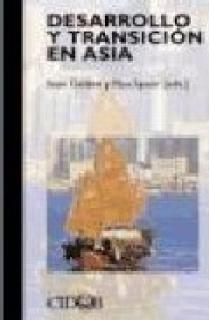ASIA'S UNKNOWN UPRISINGS
Volume 1: South Korean Social Movements in the 20th Century
22,00 €
BEZa barne
Badugu
ASIA'S UNKNOWN UPRISINGS
Volume 1: South Korean Social Movements in the 20th Century
| ISBN | 978-1-60486-457-1 |
|---|---|
| Orriak | |
| Urtea | 2014 |
| Argitaletxea | Pm Press |
| Saila | Asia |
Using social movements as a prism to illuminate the oft-hidden history of 20th century Korea, this book provides detailed analysis of major uprisings that have patterned that country’s politics and society. From the 1894 Tonghak Uprising through the March 1, 1919, independence movement and anti-Japanese resistance, a direct line is traced to the popular opposition to U.S. division of Korea after World War II. The overthrow of Syngman Rhee in 1960, resistance to Park Chung-hee, the 1980 Gwangju Uprising, as well as student, labor, and feminist movements are all recounted with attention to their economic and political contexts. South Korean...
opposition to neoliberalism is portrayed in detail, as is an analysis of neoliberalism’s rise and effects. With a central focus on the Gwangju Uprising (that ultimately proved decisive in South Korea’s democratization), the author uses Korean experiences as a baseboard to extrapolate into the possibilities of global social movements in the twenty-first century. Previous English language sources have emphasized leaders—whether Korean, Japanese, or American. This book emphasizes grassroots crystallization of counter-elite dynamics and notes how the intelligence of ordinary people surpasses that of political and economic leaders holding the reins of power. It is the first volume in a two-part study that concludes by analyzing in rich detail uprisings in nine other places: the Philippines, Burma, Tibet, China, Taiwan, Bangladesh, Nepal, Thailand, and Indonesia. Richly illustrated, with tables, charts, graphs, index, and footnotes. Praise: "George Katsiaficas has written a majestic account of political uprisings and social movements in Asia—an important contribution to the literature on both Asian studies and social change that is highly-recommended reading for anyone concerned with these fields of interest. The work is well-researched, clearly-argued, and beautifully written, accessible to both academic and general readers." — Prof. Carl Boggs, author of The Crimes of Empire and Imperial Delusions “This book makes a unique contribution to Korean Studies because of its social movements’ prism. It will resonate well in Korea and will also serve as a good introduction to Korea for outsiders. By providing details on 20th century uprisings, Katsiaficas provides insights into the trajectory of social movements in the future.” — Na Kahn-chae, Director, May 18 Institute, Gwangju, South Korea “This book about people's power movements in Asia over the last sixty years makes the case, convincingly, that they should be seen as part of the worldwide new left. Reading it will broaden the perspective of activists and analysts in North America and Europe, a very important task.” —Immanuel Wallerstein, Senior Research Scholar, Yale University “Visionary historian George Katsiaficas writes like a novelist with the eye for detail of a poet and the moral weight of a philosopher. He has circled the globe applying his seminal theory of the Eros Effect. Asia’s Unknown Uprisings is the latest chapter of his grand epic. Like Pablo Neruda’s Canto General, Katsiaficas’s works are a blueprint for hope for “all the peoples struggling for freedom.” —Richard Cambridge, author of One Shot News—Poetry of Conscience “In Asia’s Unknown Uprisings, George Katsiaficas inspires readers with an exciting yet scholarly examination of the rise and interlinking of mass revolutionary waves of struggle. In no way Pollyannaish, Katsiaficas presents readers with an analysis of the successes and failures of these late twentieth-century movements. In view of the phenomenal Arab democratic uprisings begun in late 2010 and early 2011, Katsiaficas’s analysis is profoundly relevant in helping us understand how the metaphorical flight of a butterfly in one part of the planet can contribute to a metaphoric hurricane thousands of miles away.” —Bill Fletcher, Jr., coauthor of Solidarity Divided, and BlackCommentator.com editorial board member




